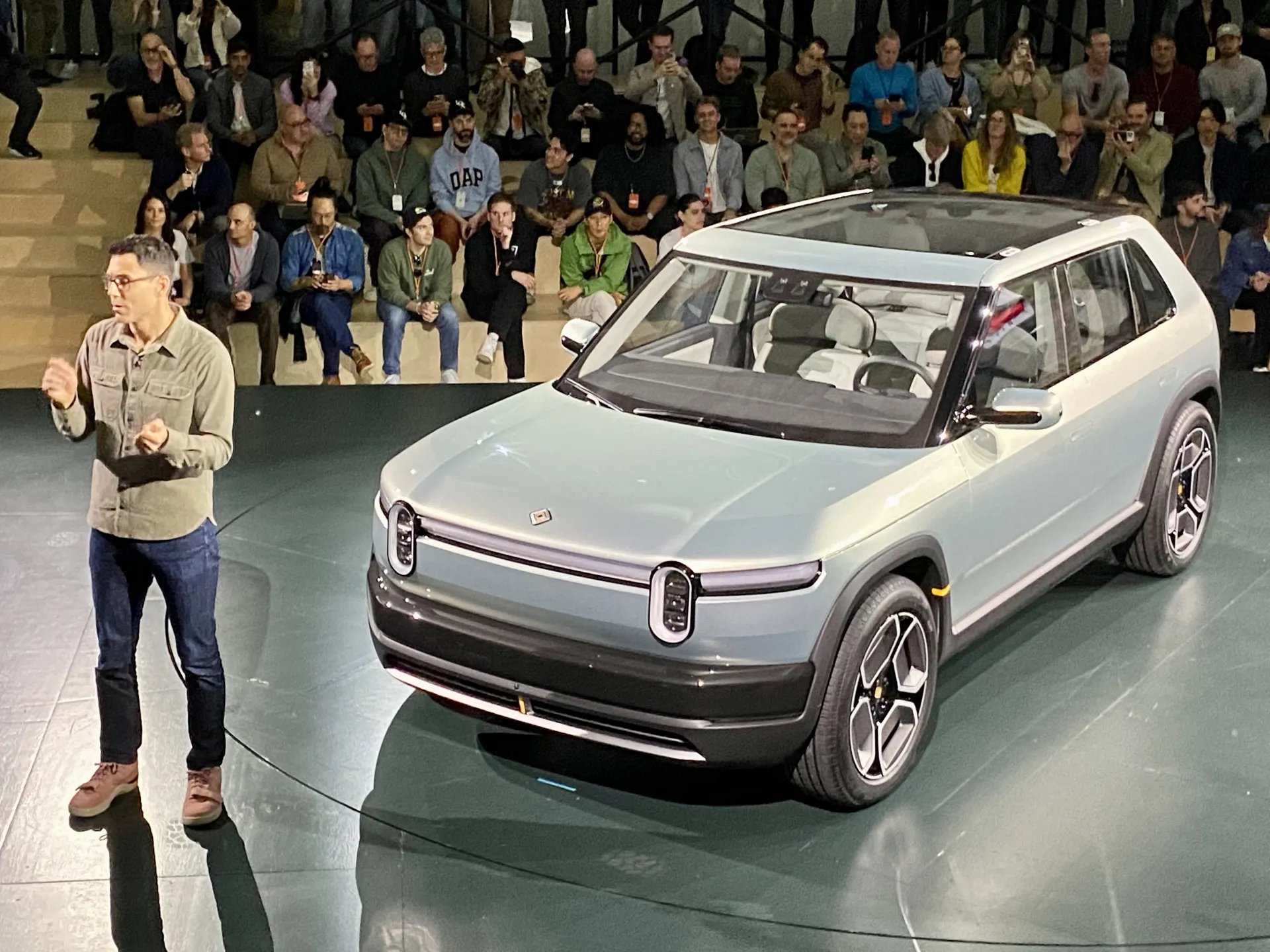Rivian on Thursday delivered what was expected—the R2 electric SUV. And then it stole the R2’s stage with products that fans, investors, and EV shoppers didn’t know they needed: the Rivian R3 and R3X.
A short time after the reveal, I noted that while plenty of fans were checking out the R2, there was a frenzy around the R3. And Rivian executives themselves appeared full of enthusiasm about these compact EVs—including Rivian’s head designer Jeff Hammoud.
“The thing I most love about R3 is I’ve asked quite a few people, what kind of car would you call this? Is it a hatch or an SUV? And nobody really has an answer, and that’s great.”
Hot hatch, rally car, trail runner? All of the above
“When I was first talking about this with RJ we were going through the conception of it and the conversation we had was just, like, I don’t want to fall into a segment, I want people to just say it’s an R3,” recalled Hammoud, in a Q&A session with media. “And I think we’ve achieved that.”
Hammoud added that with the high-performance R3X version, the goal was simply something that’s really fun. “Hopefully you guys look at it and agree that, like, I don’t know what it is but I just want to drive that.”
Rivian R3X
To me, it’s hard to believe the R2 and R3 share so many common cues—even their front-end look—as they impress as completely different design statements and personalities. The R3 follows in the footsteps of eccentric hatchbacks like the Lada Niva and Golf Country but could also win the hearts of many Subaru Crosstrek owners.
The R3 family measures 170.3 inches long and rides on a 110.2-inch wheelbase. That makes it about 15 inches shorter than the R2, which is in itself about 15 inches shorter in length than the R1S.
Today, that’s in the vicinity of the length of the Hyundai Kona Electric, Volkswagen ID.3, Renault Megane E-Tech, or MG4, among EVs. And likewise, it’s effectively in the same size class as the Toyota Corolla hatchback, the Volkswagen Golf, the Škoda Octavia, the Ford Focus, or the Seat León. But it looks more exciting than any of them—or, of course, an American-market Bolt EV or Leaf.
We’ll have to wait a bit. If the R2 arrives in early 2026, an R3 might follow relatively soon after. Unfortunately, the timeline for the next-generation Bolt EV and Leaf isn’t looking much better. And while Rivian confirmed that it wants to make the R3, it didn’t confirm when it might take reservations or where, for sure, it might be sold.
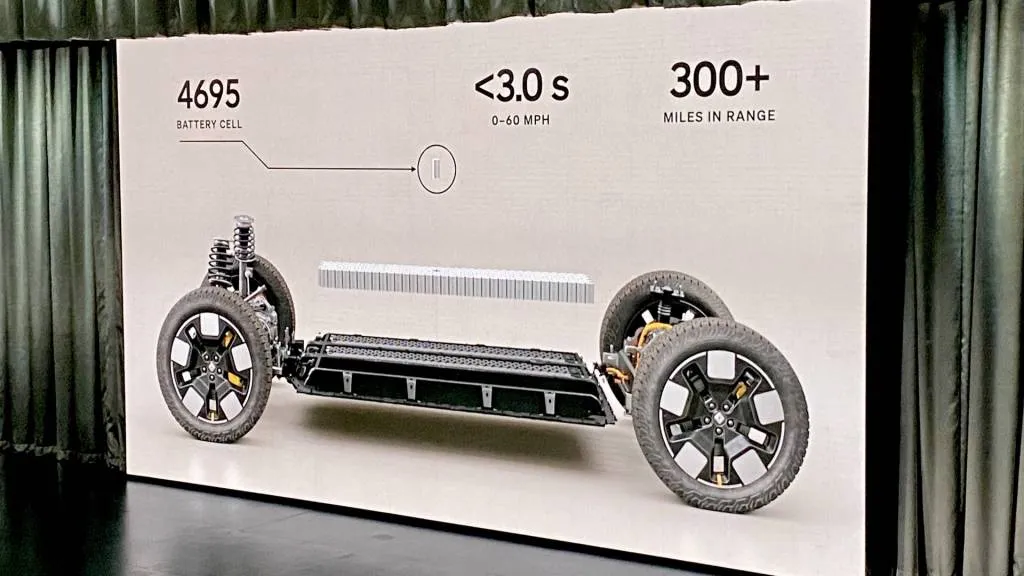
Rivian R2
Range and battery details yet to come
These models share the 4695-format cylindrical cells, packaged within a structural battery pack. Rivian didn’t yet speak to range for the R3, but Hammoud did speak a bit to charging. The vehicles shown Thursday all had their NACS charge ports on the rear right quadrant, under a tidy little flush cover.
“We did a lot of research and specifically in left-hand-drive countries in Europe,” said Hammoud, when asked why it’s there. “We saw a lot of people charging cars on the street, and you’d see anything from charging cables wrapped over hoods to get to the other side, and we wanted to solve that.”
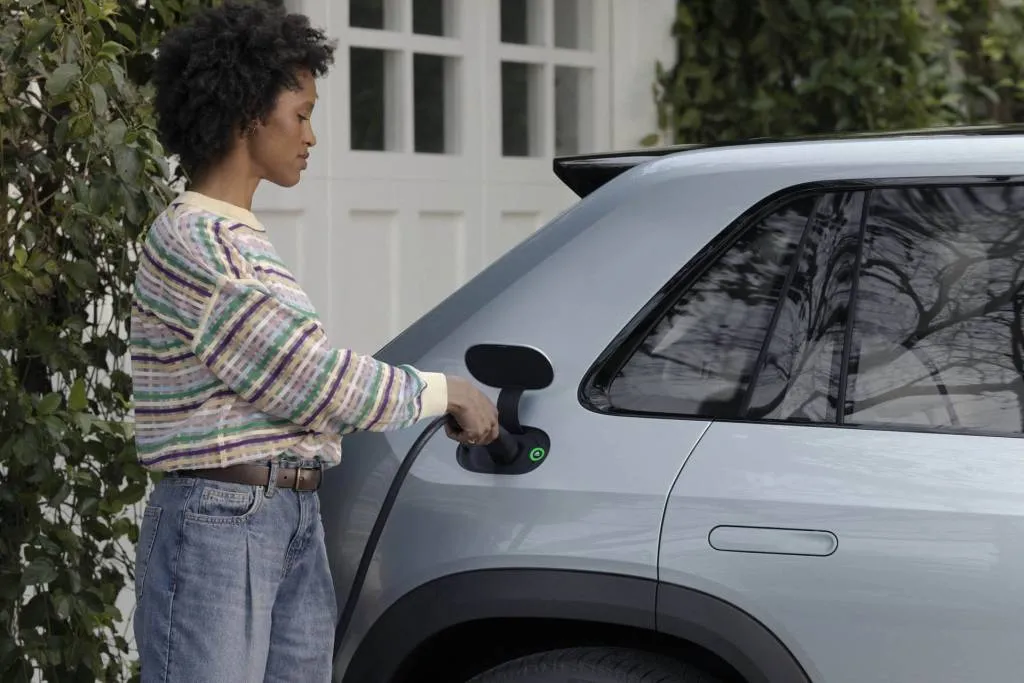
Rivian R3
“The other thing is, building off our current charging network, it’s in the front driver’s side. So if you’re gonna flip the car back into the space, essentially the exact same location.”
Putting the port there, Hammoud said, also means less wires, less weight, and less cost—for the whole R2/R3 family
Which leads to a point. According to Hammoud, although the R3 and R2 don’t have shared sheetmetal, there are a lot of shared points between the interiors of these two models that make it easier from a manufacturing point of view. Same steering wheel, our screen strategies, the center console, the seat frames.
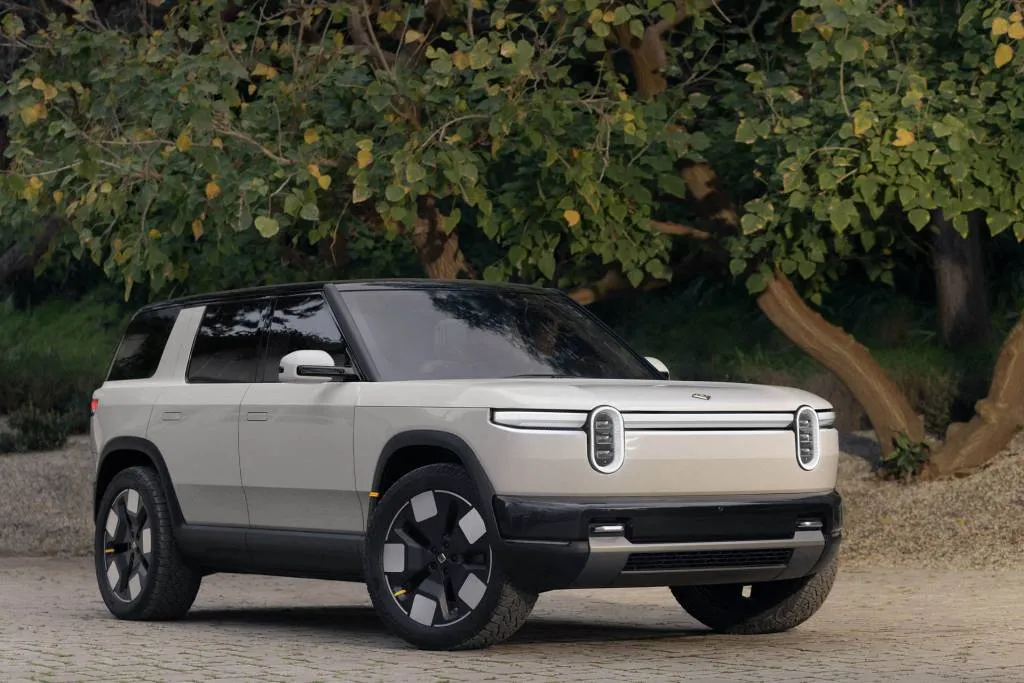
Rivian R2
R2 design didn’t come so easy
While from the sound of it the design of the R3 was fun, the R2 design process sounded more fraught as described by Hammoud—as it tapped into the expectations of those who loved what they saw in the R1 but wanted something more affordable or more sensibly sized.
The R1 was designed through addition, Hammoud recalled, but the R2 involved a lot more debate about what it didn’t want R2 to subtract, and what the key things were that it needed to carry over. That’s no surprise; Rivian CEO RJ Scaringe has said at several points that the follow-up will have less complexity than its R1 lineup and be much easier to build.
Rivian juggled wheelbase length and the placement of the glass roof so as to maximize rear headroom and spaciousness, while European pedestrian protection standards played a role, too, requiring a line at the side of the hood, which was then incorporated into the design itself.
As Green Car Reports covered with the debut yesterday, the Rivian R2 lands in early 2026 with a target price around $45,000, starting with single-motor rear-wheel drive but stepping up to two- and three-motor AWD versions offering a range of more than 300 miles (less in base form, it’s since been said), and in some cases 0-60 mph times below 3.0 seconds. The team ended up with an overall length around 185 inches long and riding on a 121.1-inch wheelbase, with an overall height of 66.9 inches and width around 75 inches.
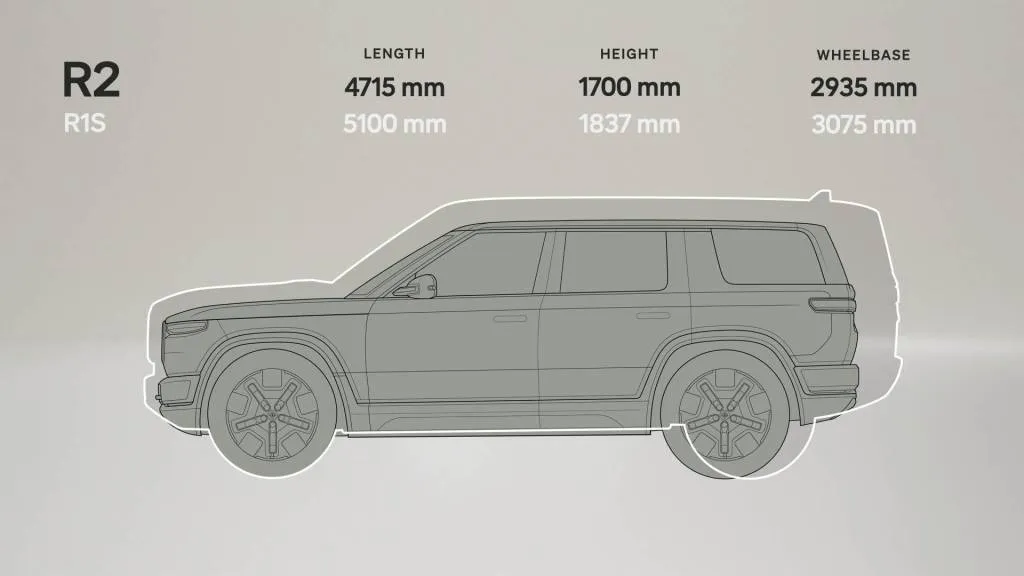
Rivian R2
According to Hammoud, the R2 builds off the profile of the R1S, although the overall proportions of the vehicle are “a lot more athletic” with very short front and rear overhangs. As shown it had 32-inch all-terrain rubber, and the truck’s 25-degree approach angle, 27-degree departure angle, and 9.8-inch ground clearance gave it a stocky, trail-ready look.
Meanwhile, shorter vehicles can pose more of an aerodynamic challenge, and so getting that part right for maximizing range with smaller battery packs was of course a priority. “We were working very closely with our aerodynamics team, doing CFD (computational fluid dynamics) analysis really early on, according to Hammoud, to understand the key attributes required for range. In the R2’s case, one of those is the way the roofline drops toad the back, bringing airflow through a pass-through spoiler.
The big subtraction items are the suspension, not being able to raise or lower. That’s not coming to R2, although they made sure to give it a tune that would work for on- and off-road and allow the capability via ground clearance. The R2 offers a ground clearance of 9.8 inches, while the R1S, with its adjustable air suspension and up to 14.9 inches, is secure in its top off-roader spot for the brand.
And there are no plans for a third row in the R2. “To have a third row for R2 would make the package very tight.”
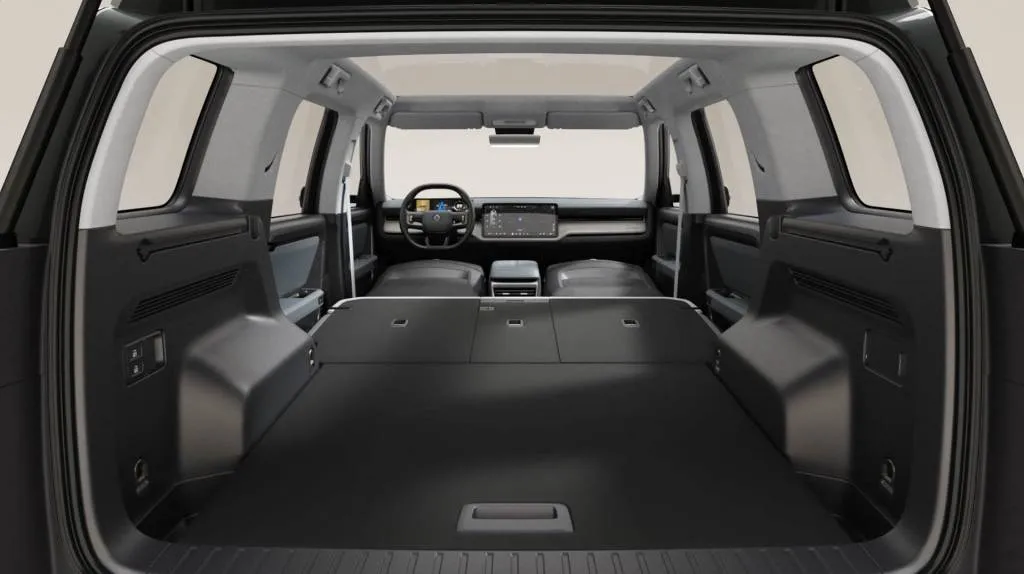
Rivian R2
Lots of innovation inside R2
That said, there is some serious innovation in the packaging in the R2—like the front and rear seats that fold fully flat, allowing enough continuous length to transport very long project items like 16-foot baseboard trim with it resting on the liftgate’s rim (the glass rolls down). Once that window’s down, don’t forget about the little table good for drinks or the fine bits as you gear up for your outdoor activity of choice. And dogs are likely going to love the breeze from the pop-out panel windows in back.
On the adventure front the R2 boasts an entirely new kind of bike-rack system that can be put up with one person and stored away much more easily. Rivian plans to offer both a bed to sit on that flat floor and a rooftop tent, and a revised camp kitchen is in the works.
R1S complex split-tailgate setup was one of the most difficult items to solve for R2. Owners really like the R1S tailgate and “being able to sit there and basically have a little awning there to cover you if it’s raining,” he described, but it’s cost and complexity. So Rivian’s solution, with a one-piece liftgate, was a pull-out tray that you can sit on.
Interface-wise, the steering wheel and its large rotary dials were touted in multiple instances. With it, two haptic-twist controllers within the wheel use different types and levels of haptic feedback depending on what you’re scrolling through or selecting at the moment.
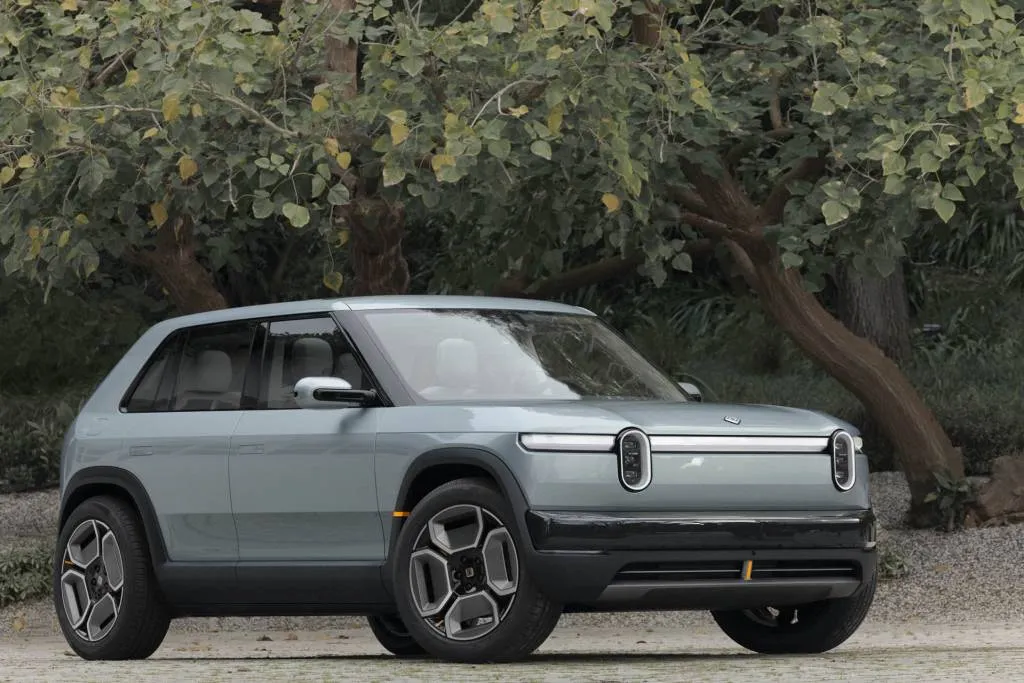
Rivian R3
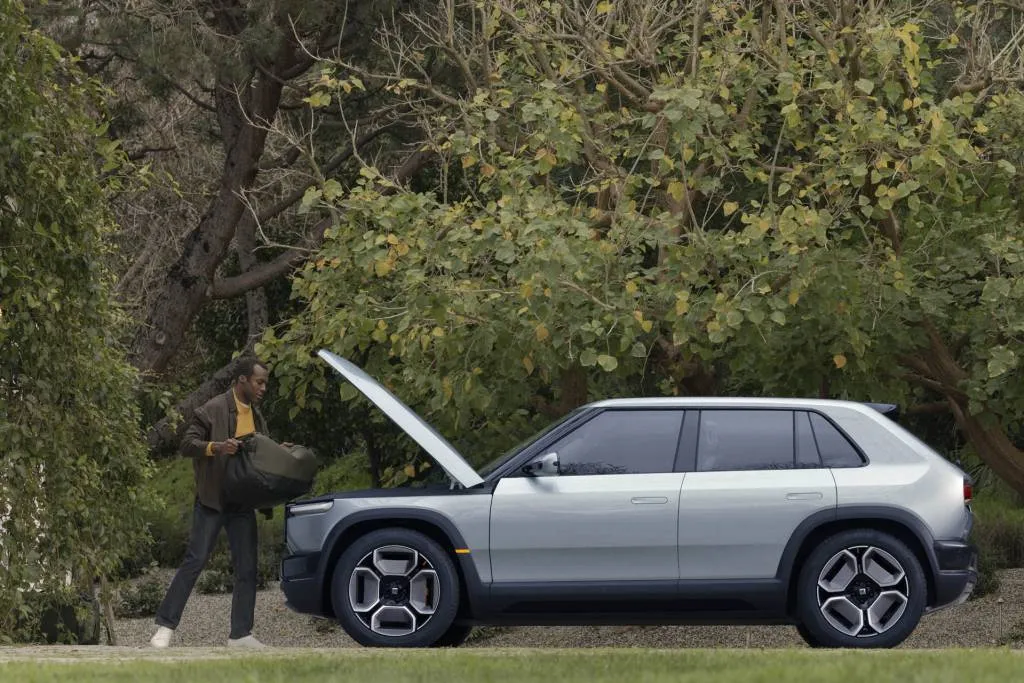
Rivian R3
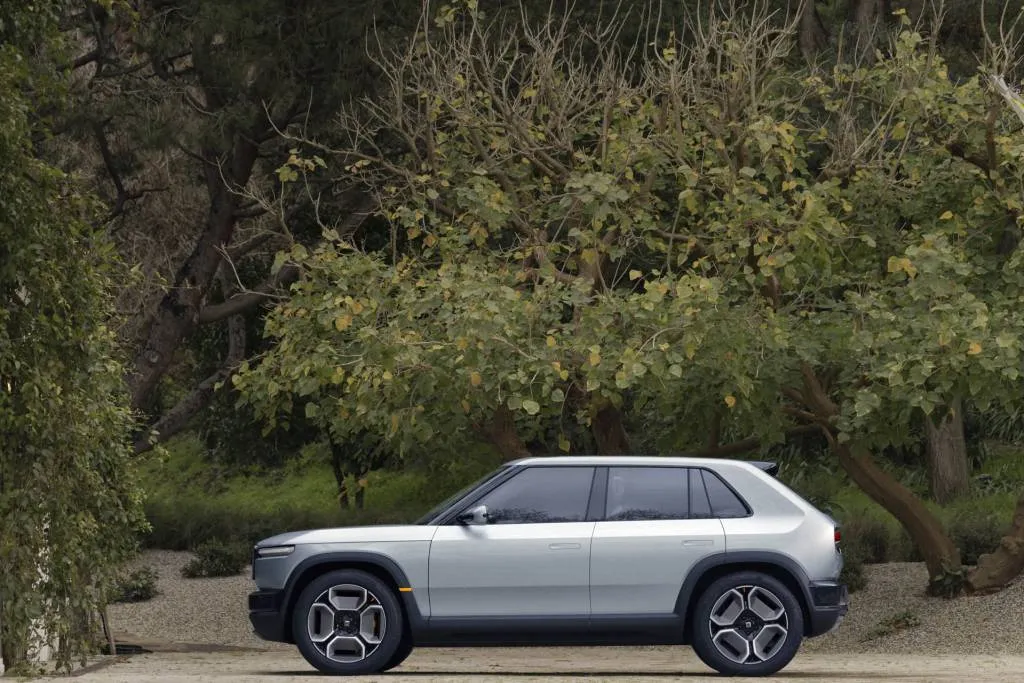
Rivian R3
R2, R3, R3X made for the same assembly line?
“A lot of work went into designing R3 and R2 together to make sure as a platform, a lot of the components are shared, a lot of network architecture is obviously shared,” said Hammoud, and that extends to manufacturing and the supply chain.
R2 wlll be a little more dynamically focused toward on-road performance than R1, Hammoud summed, while R3 will be the most focused on-road of the three.
Hammoud pointed to the area behind the rear wheel of the R2 and noted that when the vehicle gets damaged that’s just an injection-molded part and easy to replace. And, he said, there are also a lot of shared points between the interiors of the R2 and R3 that makes it easier from a manufacturing point of view—like the same steering wheel, screen strategies, center console, and seat frames.
Essentially during the time Rivian was revealing the R2, R3, and R3X on Thursday, the company confirmed a whopper of a manufacturing announcement. It will pause construction on its $5 billion Georgia factory, which had up until then been set for a 2026 ramp and an eventual 400,000 vehicles per year, in favor of a “capital efficient launch” first at its Illinois plant, for deliveries starting in early 2026.
With Rivian’s mentions of Europe, plus its very well-received R3 family, it might very well have some new priorities after this past week.
Read the full article here



